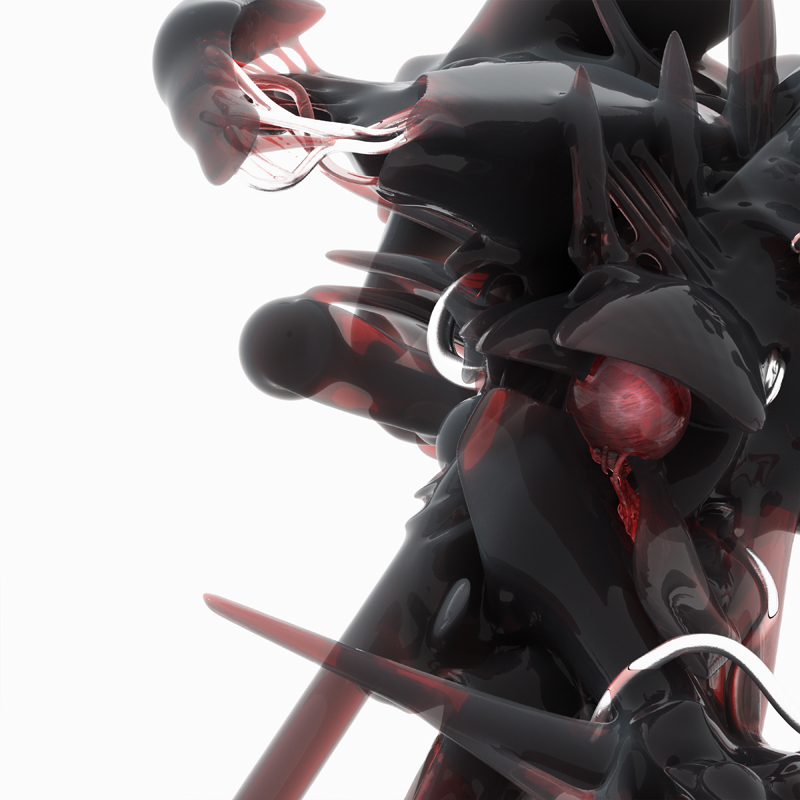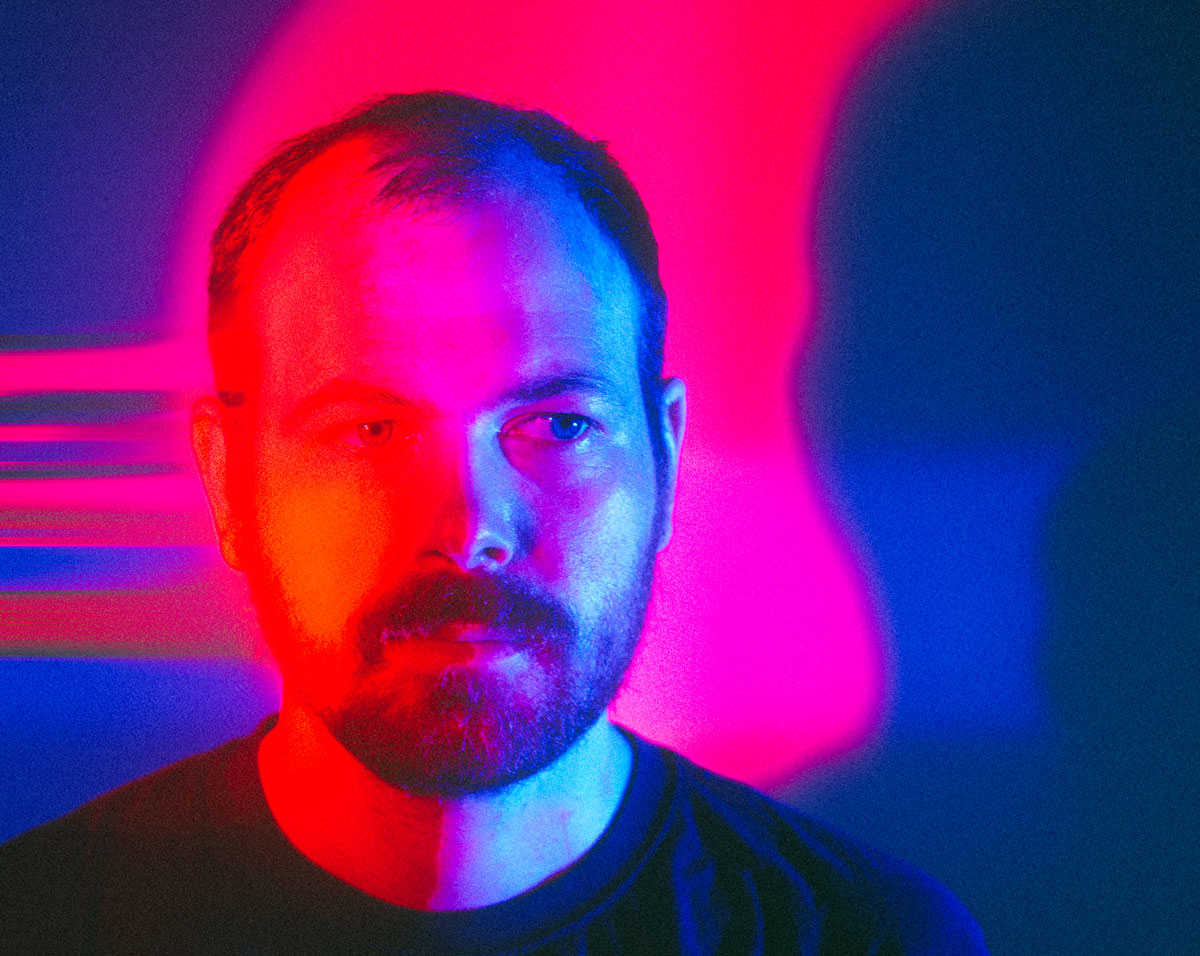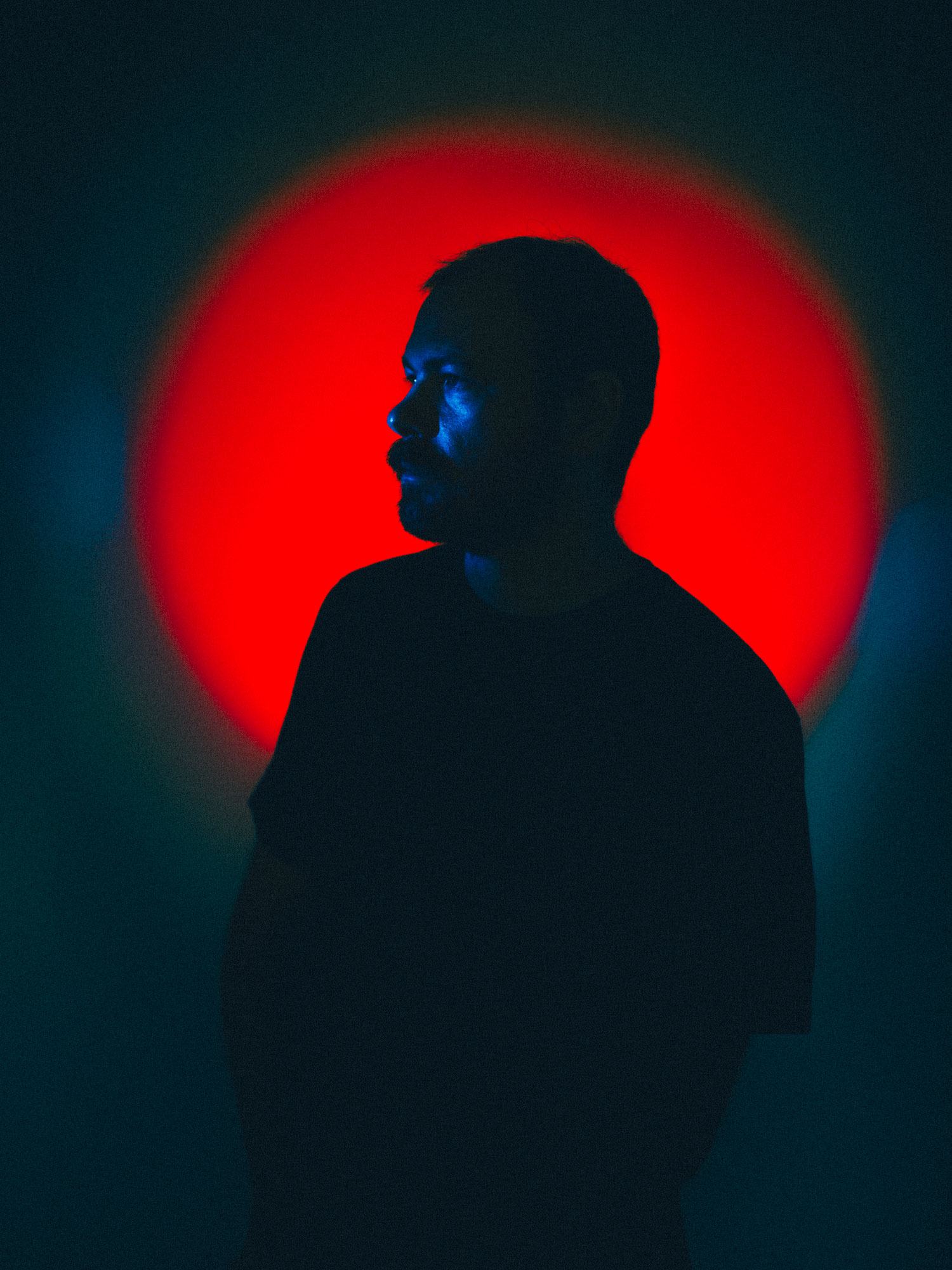Watch the sun go down over a city. As darkness crawls in, electric lights flicker on one by one in every inhabited building. It doesn't happen all at once. It's a slow, irregular pulse, a macroorganism shifting between states, a gentle, staggered display of ambient life. Ixona, the second album from Chicago producer Conor Mackey under his Lynyn alias, unfurls with the same quiet vibrancy. Its dub-inflected, acid-tinged, breakbeat-propelled electronic compositions immerse the listener in an environment that's both vastly spacious and startlingly intimate, like catching glimpses of anonymous lives in windows across a skyline.
A classically trained musician and composer, Mackey has worked alongside a wide variety of collaborators from symphony orchestras to pop singers. He plays guitar in the avant-jazz band Monobody, and has produced records with his Sooper Records labelmates NNAMDÏ and Warm Human. By day, he writes functional music informed by neuroscience principles for a specialty streaming platform. With his Lynyn project, Mackey drills down into the glittering particulars of finely hewn machine music: how clusters of artificial shards can lock together into living movement.
"One of the amazing things about electronic music, and one of the things that initially attracted me to it, is that every sound is an object. There’s no physicality associated with it," Mackey says. "When you play a guitar or a violin, you understand what happens physically in order to create that sound. And when you hear a recording of a physical instrument, you can imagine what it looks like to play it. But with electronic music, there’s no physical association. It is nothing other than the sound object in and of itself."
Mackey first discovered electronic music while he was still in elementary school. He received a Guinness Book of World Records as a gift in the late '90s and immediately started poring through the music section. "One of the blurbs was about the top-selling drum and bass album of the year. I was really interested in playing bass, and so I was like, oh, it’s a kind of music called drum and bass. Bass is in the title. I want to check it out," Mackey says. "The album was New Forms by Roni Size and Reprazent. It’s that early, liquid, jazzy drum and bass -- totally not what my nine-year-old brain was expecting, but I loved it. I didn’t know what drum and bass was. I had no idea what I was even listening to. I didn't understand how those sounds were made. It was the very first purely electronic music that I loved, and looking back, it had a major impact on me."
Further exploration led Mackey to the dense, propulsive intricacies of IDM artists like Aphex Twin and Squarepusher, whose influence rings brightly over Lynyn's 2022 debut, lexicon (Sooper Records). In the years following lexicon's release, Mackey found himself diving into turn-of-the-millennium minimal dub techno from artists like Pole, Basic Channel, and Deepchord. The album Loop-Finding-Jazz-Records by Jan Jelinek proved especially influential on Lynyn's next moves. "It’s very much a sink-into-the-couch kind of record. It’s extremely spacious, but it feels very close -- very haunting, but comforting at the same time," he says. "There’s these little vinyl clicks and pops, and the percussion is built out of micro-sounds, and then you have these planes of pads and loops in the background. I tried to integrate those components into the style I’ve been working on for years."
Throughout Ixona, Mackey's detailed, precise rhythms skitter across newly open space. Verdant sub-bass throbs beneath half-drowned vocal samples on the melancholy opener "Nobody Knows Me": the first track Mackey completed for the album, and the one that set the tonal palette for the songs that followed. Working almost exclusively with hardware synthesizers, he concocted ASMR-inducing ripples and scrapes, squelching acid bass lines, and glistening, crystalline leads, all enfolded within the same warm, roiling atmosphere. Wistful voices list against jagged breaks on "Light Morph," while "The Fold" weaves its rubbery, buoyant bass through clattering polyrhythms. "Night Shift" lets unintelligible samples of speech smolder beneath eerie vinyl crackles. The delicate, playful arpeggiations of "RESton" give way to sidelong percussive scratches and wiggling treble squeals on "4m Hiero." At the album's finale, "Pad C U" swings from unseated ambivalence to gentle optimism as horns and glassy voices fill the air.
"I really like music that feels like it has forward momentum but is static at the same time," says Mackey. "It seems to be frozen in time, but through its rhythmic vitality, its texture comes into primary focus. It creates space. It pulls you in. My music as Lynyn has always been pretty maximalist and intricate, and there’s plenty of that still present here. But while lexicon had a lot of aggressive percussion, Ixona is built from much smaller, more delicate sounds: lots of little pinpoints all over the place. Rather than blow people back, I was trying to draw people in."
As he worked to integrate a more aerated, atmospheric feel into his compositions, Mackey also focused on refining their evocative pull. "Something I’ve been striving to do more lately is to make music with more emotional valence," he continues. "I’ve always felt really attracted to music that is simple and direct, and doesn’t rely on virtuosity to communicate. But I have struggled to figure out what minimalism means for me. Ixona might be the first step on a journey to a more minimal expression. I tried to stick to the soul of each piece, rather than feeling like it needed to be a jarring, impressive assault."
Just as synthesized sounds hint at the ideas of musical objects that don't or can't exist, Ixona as a whole traces the contours of a vivid but unreal place. Chicago based digital artist Owen Blodgett—Lynyn’s longtime visual collaborator both on and off the stage— created the album's cover art from a fractal map; its organic, coral-hued forms suggest the reflection of clouds in water, or organisms swaying just beneath the surface. The image looks alive and impossible at the same time. Ixona, too, teems with virtual life. "It’s this imaginary other space," says Mackey. "You can only reach it through the music." Beat by micro-beat, through mesmerizing pointillist swarms, this place that is no place assembles itself and glows.











